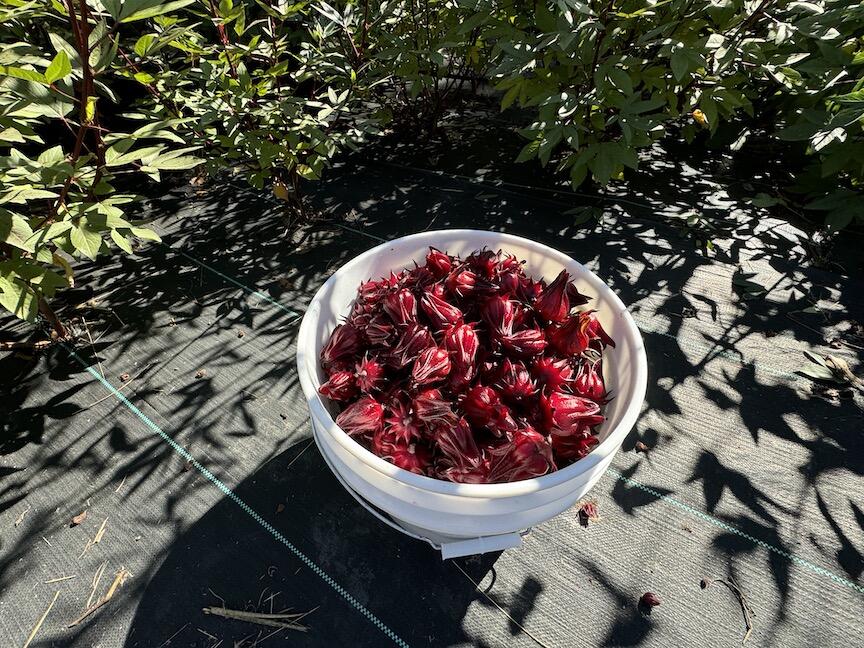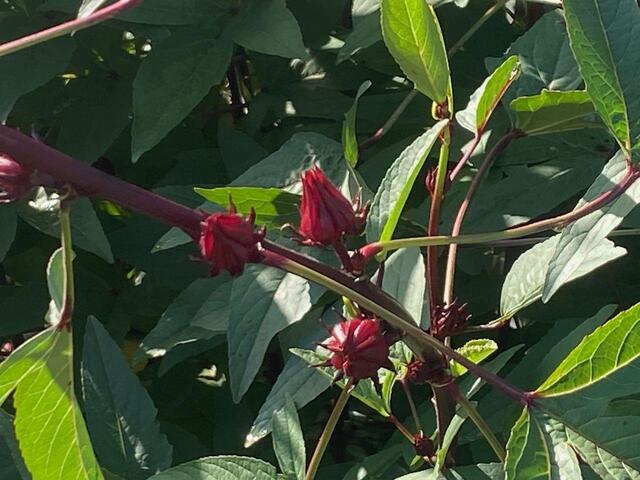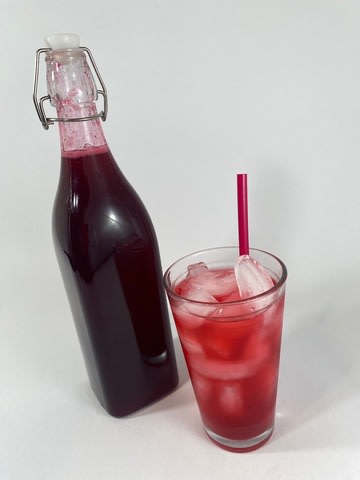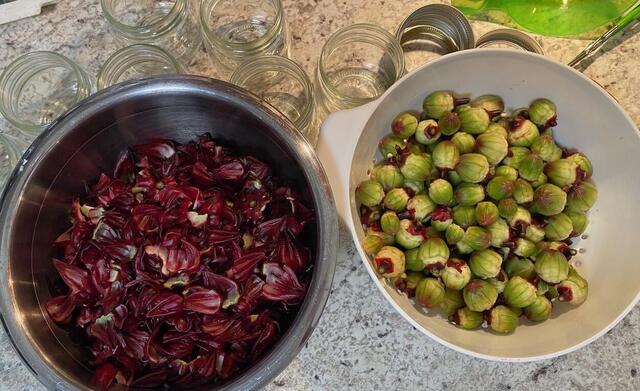
A Bold Bloom Full of Flavor, Wellness and Opportunity
by Anna Grace Tompkins, Sweet Grown Alabama Summer Intern
August 5, 2025
In the heart of Tuskegee, a tropical revolution is taking root one vibrant red bloom at a time. Jacqueline McArthur, farmer and founder of Hibiscus Roselle at Tuskegee Honey, is mastering the growth of Hibiscus Roselle, a resilient and culturally rich plant with tremendous potential for Alabama agriculture according to McArthur.
McArthur has grown 600 Hibiscus Roselle plants, with harvest time planned for September through October. The effort is a step toward sustainability, economic opportunity and cultural reconnection.

Hibiscus Roselle is widely popular in the Caribbean, as well as in African and Asian cultures. From herbal teas and jams to natural dyes and food colorings, the plant’s uses are diverse and growing in demand.
Despite its popularity, the U.S. currently imports about 90% of its Hibiscus Roselle, primarily from Mexico and Thailand, which amounts to approximately 5,000 tons, valued at $22 million. McArthur sees this as a promising opportunity for local farmers to fill the gap with a homegrown supply.
“It’s the easiest plant I’ve grown with no irrigation, no fertilizer, no pesticides and it still thrives,” McArthur explains.
Encouraged by a friend trying to grow the crop a few years ago, McArthur quickly saw the value in this hardy, low-maintenance plant. Her success has earned her a grant to promote Hibiscus Roselle as a value-added cash crop for Alabama’s small farms.

More than just a pretty flower, Hibiscus Roselle boasts an impressive list of health benefits. It’s high in vitamin C, may help lower blood pressure, reduce inflammation and even support weight loss. The plant's calyces, the red, fruit-like part, are used in teas, jams and natural food products.
Hibiscus Roselle is sparking attention as a natural alternative to synthetic dyes like Red 40, which the FDA plans to phase out of the food supply. Its versatility extends much further, the plant's fibrous stems have value, and the leaves are edible, offering yet another layer of utility.
Hibiscus Roselle isn't just good for people, it’s great for the environment. The plant blooms in fall. When most other flowers have withered, this offers a crucial food source for pollinators. Its bee-friendly nature even supports the local honey industry, potentially helping bees resist diseases and thrive during leaner months.


Hibiscus Roselle grows well in poor soil conditions, requires little to no irrigation, and thrives in both wet and dry climates. This makes it an ideal crop for small-scale farmers seeking sustainable, low-cost farming options. Despite its many benefits, harvesting Hibiscus Roselle comes with two challenges. It must be harvested by hand and before the first frost. There are currently no machines designed to harvest this product, making the harvest labor-intensive and time sensitive.
McArthur’s vision goes well beyond her own farm. She aims to raise awareness, boost local production and inspire other farmers to diversify their crops and income streams. She sees Hibiscus Roselle as a pathway for rural communities to build stronger, more resilient local food systems.

She also hopes to connect with consumers, chefs and herbal tea companies interested in Sweet Grown Alabama ingredients that deliver on both quality and purpose.
“Being part of Sweet Grown Alabama allows me to connect with more farmers and customers and to promote Hibiscus Roselle as a valuable and beautiful crop grown right here in our state,” McArthur said.
With her passion for farming, commitment to sustainability, and dedication to community, Jacqueline McArthur is helping Hibiscus Roselle bloom into something much more than a plant. It’s becoming a symbol of health, heritage and homegrown opportunity.
Contact Tuskegee Honey or check out this free course to learn more about Hibiscus Roselle.
